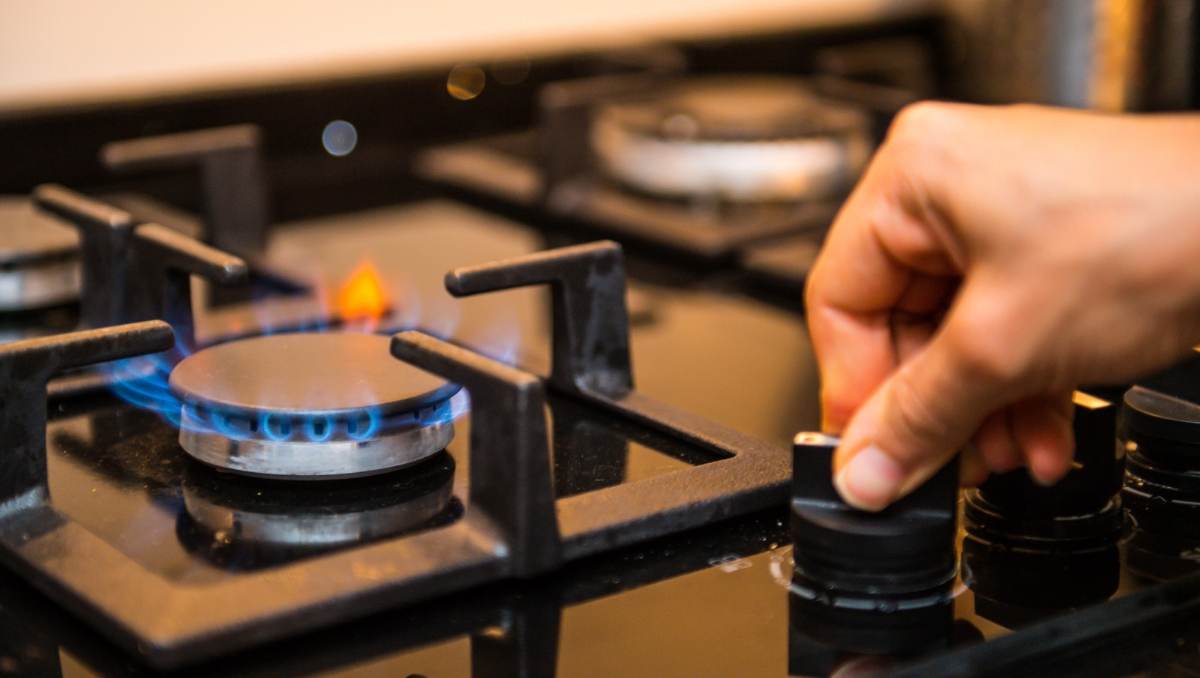This post contains affiliate links. See the affiliate disclaimer here.
Are you familiar with that popping sound your electric stove makes when you turn it on? In most cases, it’s completely harmless. In this article, we’ll explore the reasons behind this popping sound and provide you with some helpful tips on how to handle it.
Stove burners are essential components of your electric stove that generate the heat needed for cooking. They consist of a heating mechanism and various types of burners, such as gas burners or electric coils. When you turn on a stove burner, it initiates the ignition process, leading to the production of heat. However, the popping sound is more commonly associated with gas burners.
So, why does this popping sound occur? When you turn on a gas burner, it releases gas into the burner assembly. As the gas flows, it mixes with the surrounding air. For combustion to happen, the gas requires the right combination of air and fuel.
In the next section, we’ll delve into the common causes of stove popping sounds and how you can troubleshoot them effectively.
Common Causes of Stove Popping Sounds
When it comes to stove popping sounds, there are several common causes that you should be aware of. Understanding these causes can help you troubleshoot any issues and ensure the safe and efficient operation of your stove burners. Let’s take a look at some of the most prevalent causes:
- Presence of liquid elements: One of the most common culprits behind popping sounds is the presence of liquid elements in the combustion chamber. These can include water, oil, or other types of liquids. To eliminate this issue, you can use a vent pipe or consider replacing the burner with a new one.
- Open doors: Left-open doors can also contribute to noise and other problems, such as carbon monoxide poisoning from a leaky chimney flue pipe or ductwork. Always make sure that your stove door is securely closed before turning on the stovetop again.
- Incorrect knob adjustment: Another frequent cause of popping sounds is incorrect knob adjustment. The knobs on your stove are meant to provide constant heat, so if you have changed the settings, it can affect the consistency of your hot water or steam. Make sure to check and adjust the knobs properly to avoid any operation issues with your stove.
- Ignition process of the gas-air mixture: Lastly, the ignition process of the gas-air mixture itself can contribute to popping sounds. Factors such as the gas supply, air mixture ratio, and the condition of the burner assembly can all influence the sound. To minimize popping sounds, it is crucial to maintain a proper gas supply and ensure a balanced air-gas mixture.
Lack of Proper Air and Fuel Mixture
One common cause of stove popping sounds is a lack of proper air and fuel mixture. The combustion process in a stove relies on the right ratio of air to gas for efficient and safe operation. If there is an imbalance between the gas and air mixture, it can lead to variations in the combustion process and contribute to popping sounds.
When there is too much gas and not enough air, it results in a fuel-rich mixture. This can lead to a more explosive ignition and a louder popping sound. On the other hand, when there is too much air and not enough gas, it results in an incomplete combustion, producing a weaker popping sound.
To troubleshoot and address this issue, it is important to understand the role of the air shutter. The air shutter is typically located at the end of the air tube closest to the control knob for the burner. By adjusting the air shutter, you can control the amount of air entering the combustion process.
To determine if the popping sound is due to an imbalance in the air and fuel mixture, you can try opening the air shutter slightly wider, around 1/16 to 1/8 of an inch, to provide a bit more combustion air. Pay attention to whether this adjustment improves or worsens the popping sound.
Ideally, the flame should be blue, indicating a proper air and gas mixture. If the air supply is too little, the flame will be weak or may even blow out. If the air supply is too much, the flame will be yellow.
Delayed Ignition
The ignition process is another factor that can influence the popping sound. In most gas burners, the ignition occurs through a spark or a pilot light. If there is a delay in the ignition process, it can result in a buildup of gas/air mixture inside the burner assembly. When the ignition finally occurs, this buildup of mixture can lead to a more forceful explosion and a louder pop sound.
Additionally, any issues with the ignition system, such as a malfunctioning spark or a weak pilot light, can affect the timing and intensity of the ignition and contribute to the popping sound.
To troubleshoot delayed ignition issues and reduce the popping sound, here are some tips:
- Ensure that the ignition system is clean and free from debris. Accumulated grease or food particles can interfere with the spark or pilot light’s effectiveness, leading to delays in ignition. Regularly clean the ignition components to prevent buildup.
- Inspect the sparkers or pilot lights for any signs of damage or wear. Malfunctioning ignition components can affect the timing and intensity of the ignition process. Replace faulty sparkers or repair weak pilot lights to improve the ignition performance.
- Check the gas supply and pressure. Low gas pressure can contribute to delayed ignition and popping sounds. If you suspect gas pressure issues, consult a professional to inspect and adjust the gas supply or gas pressure regulator as needed.
Clogged Burner Ports
One of the common causes of stove popping sounds is clogged burner ports. Over time, debris like dirt, grease, and food particles can accumulate in the burner ports of a gas stove. These clogs can disrupt the flow of gas to the burner, leading to irregular burning patterns and popping noises.
To maintain a steady gas flow and prevent unwanted noises, it’s essential to clean the burner ports regularly. You can use a soft brush or a toothpick to gently remove any debris that may be clogging the ports.
Cleaning the burner ports is a simple task and only takes a few minutes. However, make sure that the stove is turned off and cool before attempting to clean the ports. Additionally, be careful not to damage the ports during the cleaning process.
Regular maintenance of the burner ports will not only prevent popping sounds but also help to improve the overall performance and efficiency of your gas stove.
So, if you notice popping sounds coming from your stove, take a moment to inspect and clean the burner ports. This simple step can go a long way in resolving the issue and ensuring a better cooking experience.
Faulty Igniter
A faulty igniter can also be a common cause of popping sounds in a gas stove. Modern gas stoves often feature an electric ignition system that clicks when you turn the knob to ignite the burner. If you don’t hear any clicking sounds, it’s possible that the igniter is faulty or dirty.
A dirty igniter can disrupt the ignition process, leading to delayed ignitions and larger popping noises. In this case, cleaning the igniter carefully might solve the issue.
However, if cleaning doesn’t improve the performance of the igniter, it may be necessary to consider replacing it to ensure smooth ignition and reduce noise.
To clean the igniter, make sure the gas supply is turned off and then gently remove any dirt or debris that may have accumulated on the igniter. A soft brush or a toothbrush can be used to carefully clean it.
Be gentle and cautious during this process to avoid damaging the igniter.
If cleaning the igniter doesn’t fix the problem, it’s best to consult with a professional technician for further assistance. They can inspect the igniter thoroughly and determine if it needs to be replaced.
A faulty igniter can not only cause popping sounds but can also affect the overall performance and efficiency of your gas stove.
How to Troubleshoot Stove Popping Sounds
If you hear popping sounds when you turn on your stove burners, don’t worry. There are several steps you can take to troubleshoot and resolve this issue. By following these troubleshooting steps, you can identify and resolve the common causes of stove popping sounds, ensuring safe and efficient operation of your stove burners.
- Ensure proper gas supply: Start by checking if your gas supply is uninterrupted and that the gas pressure is appropriate. If you suspect a problem with the gas supply, you can adjust the gas valve or contact a professional to assist you.
- Clean the burner assembly: Remove any debris or grease buildup from the burner assembly. Over time, these can accumulate and disrupt the combustion process, leading to popping sounds. Use warm soapy water and a brush to gently clean the burners, ensuring they are free from any obstructions.
- Inspect the air intake: The air intake plays a crucial role in the combustion process. Make sure it is free from any blockages or obstructions. Check for any dirt or debris that may be affecting the air mixture ratio. Clear any obstructions carefully using a soft brush or cloth.
- Check the igniter: A faulty igniter can also cause popping sounds. If you have cleaned the burner assembly and the popping sound persists, it may be necessary to inspect the igniter. Look for any signs of damage or dirt buildup on the igniter. Cleaning the igniter may solve the issue, but if not, it may need to be replaced.
- Consult a professional: If you have tried these troubleshooting steps and the popping sounds continue, or if you are unsure about performing any maintenance or repairs, it is always recommended to consult a professional. They have the expertise to diagnose and resolve any complex issues with your stove burners.
Conclusion
By following the troubleshooting steps outlined in this article, you can address stove popping sounds effectively. Start by checking the gas supply to ensure that it is properly connected and functioning. Next, clean the burner assembly to remove any debris or buildup that may be causing the popping sounds.
Inspect the air intake to ensure that it is clear and unobstructed. Finally, check the igniter to ensure that it is in good working condition.
If, despite your efforts, the popping sounds persist, it is important to consult a professional. Safety should always be a top priority, and seeking professional help is the best course of action if you are unsure or uncomfortable with addressing the issue yourself.
Frequently Asked Questions
Why won’t my stove stop popping?
Cleaning the stove can fix the clicking issue. This is caused by grime, grease, and corrosion interfering with the gas flow.
What gas makes a loud popping sound?
Hydrogen is a gas that burns with a ‘pop’ sound.
Why does my gas fire make a popping sound?
The metal components of the fireplace expand with heat. This leads to creaking or popping sounds.
What happens when an oven element blows?
When an oven element blows, it will stop heating. This is because it “opens” the electrical circuit.
Why do I hear popping in my kitchen?
Popping sounds can be caused by temperature fluctuations. They can also be caused by the expansion and contraction of pipes.

